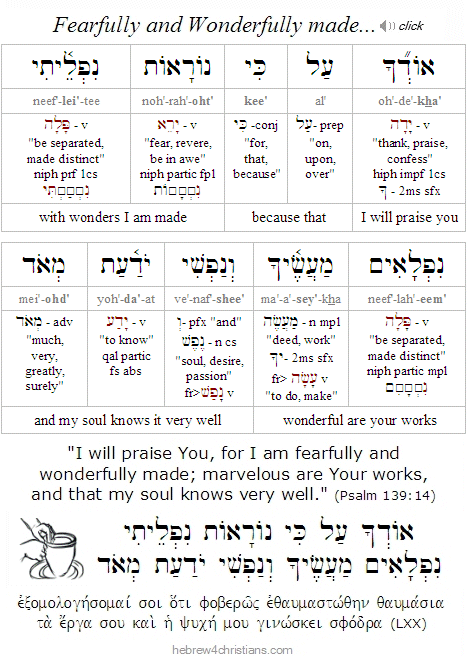|
|
|||||||||||||||||||||
 |
|||||||||||||||||||||
 |
|||||||||||||||||||||
|
|
||||||||||||||||||||||||||||
|
Some of us seem far more concerned with how others see than how God sees us... We strive to manage a public image crafted for others but lose the substance of what is real. Trying to control how we are seen by others is exhausting, however, since it implies that we must find our value in their (conditional) approval rather than from a deeper source. The emotional need for approval is a form of cruel bondage: We take ourselves too seriously, we deny who we really are, and we believe we are never good enough. Over time we become anxious and easily offended people... "Am I now trying to gain the approval of people, or of God?" (Gal. 1:10).
As Hillel had said (Avot 1:14b):
Hillel points out here that the language of "I am" (אָנִי) and "for me" (לִי) reveals that we have a relationship with ourselves that must be sanctified and ordered before God. As Soren Kierkegaard once cryptically wrote: "The self is a relation which relates itself to its own self, or it is that in the relation that the relation relates itself to its own self; the self is not the relation but that the relation relates itself to its own self" (The Sickness unto Death). In other words, the "self" - your inner life - is revealed as an inner dialog or conversation with yourself... An "authentic" self must relate itself to God as the Ground of existence, otherwise irremediable despair will result, that is, lethal sickness of soul... The remedy for anxious confusion of heart is to turn to God and to find your value in God's love and blessing. "By the grace of God I am what I am" (1 Cor. 15:10), that is, I am made a person. As we come to believe that we are accepted and loved despite our many imperfections, inadequacies, and character defects, we find courage to accept ourselves, to "let go" and relax. As Yeshua said, "whoever does not receive the kingdom of God as a little child shall not enter it" (Luke 18:17). "Real isn't how you are made," said the Skin Horse. "It's a thing that happens to you. When a child loves you for a long, long time, not just to play with but REALLY loves you, then you become Real. It doesn't happen all at once. You become. It takes a long time.... Generally, by the time you are Real, most of your hair has been loved off, and your eyes drop out and you get loose in the joints and very shabby. But these things don't matter at all, because once you are Real you can't be ugly, except to people who don't understand." (Margary Williams, The Velveteen Rabbit)
|
|
Hebrew for Christians |
|||||
|
|||||


